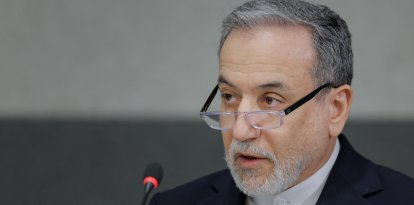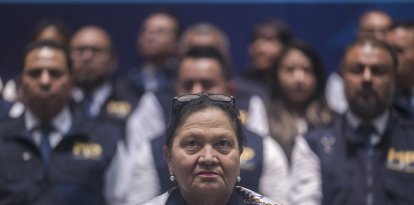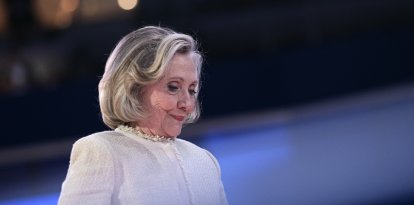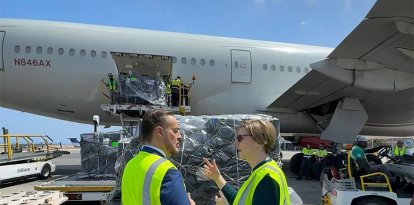ANALYSIS.
Khamenei accuses the US of "impertinence" and believes negotiations will yield "no results"
The supreme leader of the Ayatollahs' Regime warned that his country will not stop enriching uranium and will continue to "implement" its nuclear policy.

Donald Trump and Iran's supreme leader Ali Khamenei.
Iran's supreme leader, Alli Khamenei, criticized the "impertinence" of the US for trying to prevent his country from enriching uranium, for which he noted that he believes talks on the nuclear program will not yield "any results."
"We don't think they are going to yield any results. We don't know what will happen," Khamenei said during a speech in memory of former President Raisi, who died in a plane crash last year. The supreme leader added that denying Iran its right to enrich uranium is "a big mistake" and, in a defiant tone, stressed that "no one is waiting for permission from one or the other. The Islamic Republic of Iran has a policy and is implementing it."
Tehran's warning to the US
Khamenei also issued a warning to the US: "Let me give a warning to the opposing side: The Americans participating in these indirect negotiations should try not to talk nonsense," following Donald Trump's statements in which he assured that "we will not allow Iran to enrich uranium." Words described as "excessive impertinence," by the highest authority in Tehran.
Iran and the United States have held four cycles of dialogue mediated by Oman since April 12, the highest-level contacts between these two countries since Washington unilaterally withdrew from the international agreement on Tehran's nuclear program during Donald Trump's first term in office.
"Difficult but useful" negotiations
During the latest round of talks, both sides confirmed that there will be new instances of dialogue. Iran described the negotiations as "difficult but useful" and the Americans reported feeling "encouraged."
Iran defends that the purposes of its nuclear program are exclusively civilian, although the United States and other Western powers fear that Tehran is seeking to develop an atomic weapon and warn that it is approaching the level of uranium enrichment needed for it.
Iran enriches uranium to 60%, well above the 3.67% limit set in the international agreement reached in 2015 with the United States, Russia, China, France, the United Kingdom and Germany.
Iran maintains that its right to enrich uranium is non-negotiable, but chief U.S. negotiator, emissary Steve Witkoff, affirmed that this constitutes a red line. However, senior Iranian officials stated that Tehran could accept temporary restrictions on uranium enrichment.

























